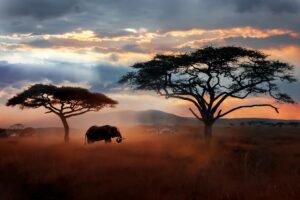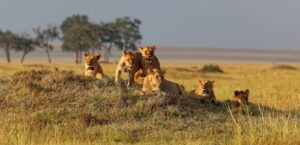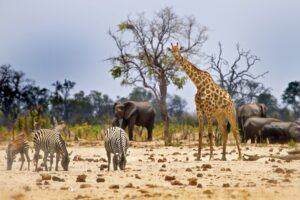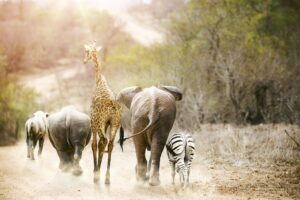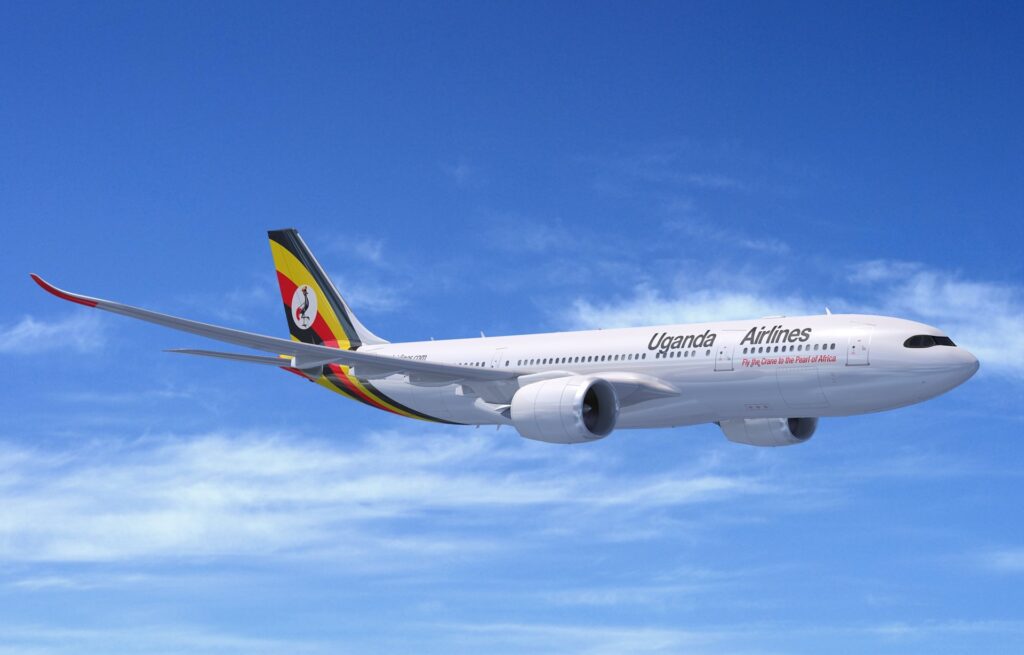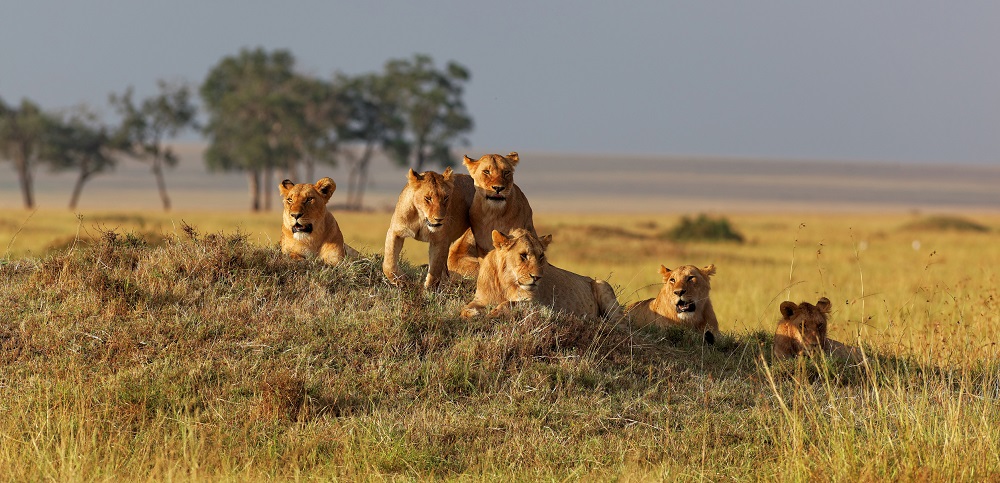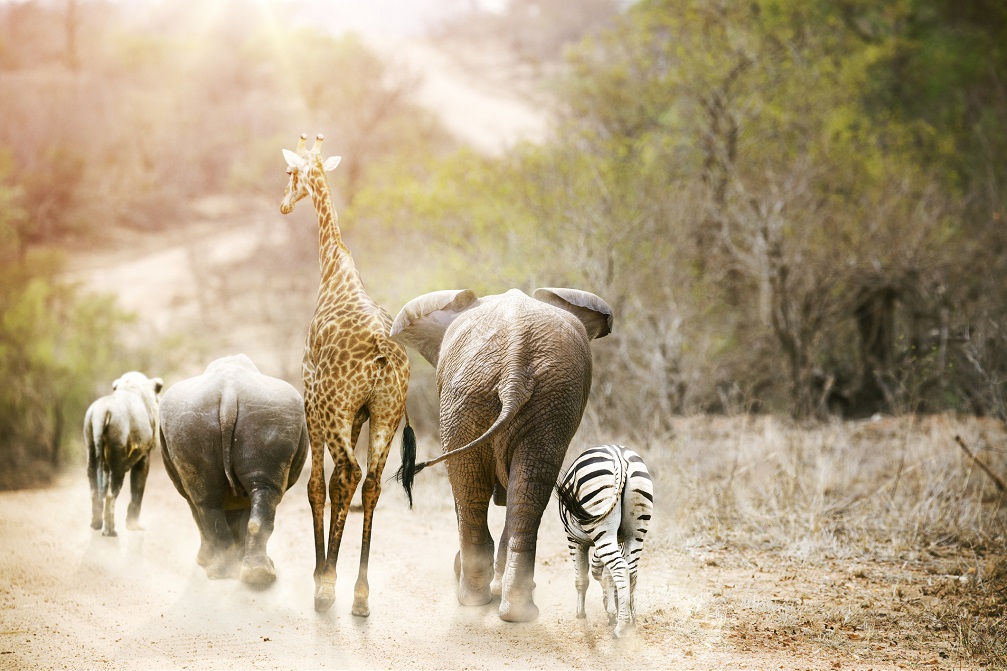Uganda
With an incredible fauna to discover, more than fifty indigenous tribes and great natural landscapes, Uganda is the perfect place where to experience a genuine African adventure.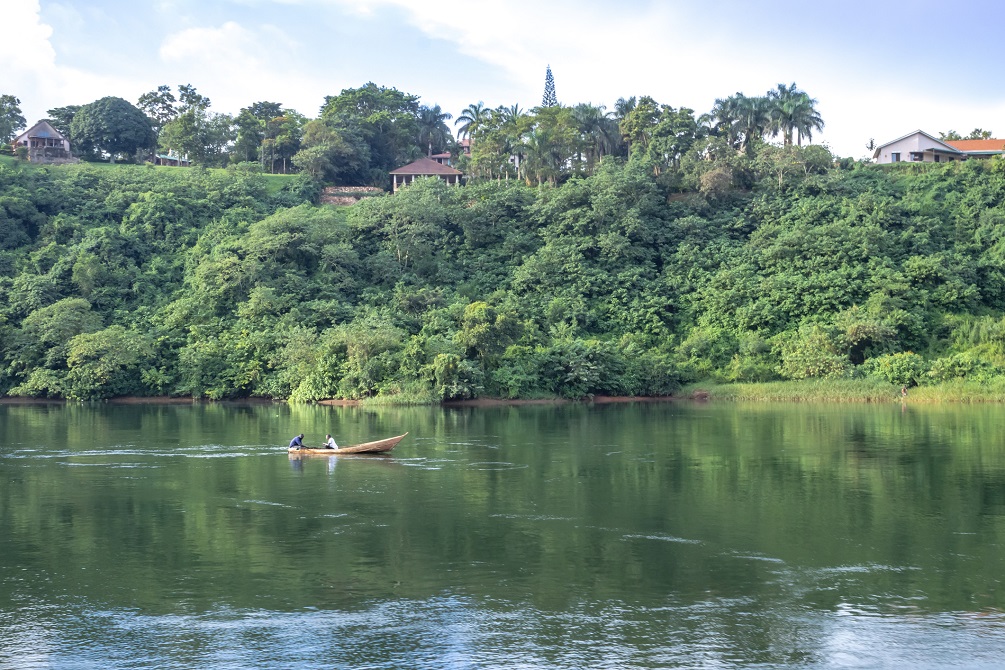
There are more than fifty different tribes living in Uganda and each of them has its own traditions and habits. If you’re interested in the local fauna, then you cannot miss a guided tour of the Bwindi Impenetrable Forest where families of guerillas live in perfect harmony with nature. In Uganda, you will find plenty of guided tours in which experts will guide you through the tropical rainforest in search of apes and big mammals. Obviously, there are also plenty of options for safaris as the country abounds in national parks. The most popular ones are Queen Elizabeth National Park, Murchison Falls National Park and Kidepo Valley National Park. Make sure to visit at least one of these during your stay to get a real Ugandan experience!
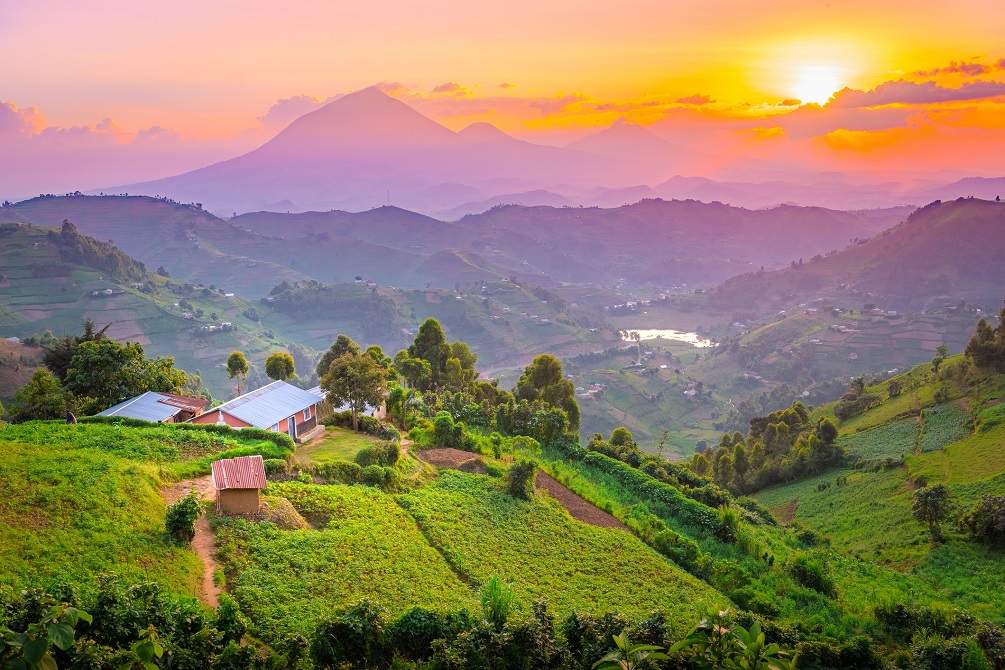


Uganda is situated in the center of Africa. It is bordered to the east by Kenya, to the north by South Sudan, to the west by the Democratic Republic of Congo, and to the south by Rwanda and Tanzania. The country is situated in the African Great Lakes region. In fact, four of East Africa’s Great Lakes can be found inside its territories. In particular, a vast portion of Lake Victoria, the biggest lake in Africa, can be found inside the borders of Uganda. The whole country is situated at about 3000 feet above sea level. Mountains can be found both on the eastern and on the western areas of Uganda with the highest peak situated on the Rwenzori mountain range at an elevation of 16712 feet. The Virunga mountains can be found on the border with Rwanda and the Democratic Republic of Congo and the Kigezi mountains can be found in the southwest of the country. Uganda also has an inactive volcano, Mount Elgon, on the border with Kenya. The country is characterized by many different habitats that range from tropical forests to semi-desertic areas and savannahs making Uganda the perfect location for travelers who are craving a reconnection with nature.



Uganda is characterized by a warm tropical climate. Temperatures usually range between 25 to 29°C. However, if you decide to visit the mountains, make sure to bring some warm clothes as temperatures here can be freezing, especially at night. Uganda is situated in the southern hemisphere and for this reason, seasons are reversed. This means that the hottest months to visit Uganda are December, January, and February. Heavy rain is frequent between the months of March and May as well as September and November. If you’re planning to do some trekking, the months of January, February, June, July, and August are ideal as precipitation is rare.



The national dish of Uganda, matoke, is simple but delicious. It consists of only one ingredient, a type of banana similar to plantains, obviously named matoke. These fruits are collected when they are still unripe and then steamed. Once they are soft, they can be mashed together and eaten. Sometimes this national dish can be fried with tomatoes and onions. Another popular dish of Uganda is Luwombo. This typical stew consists of chicken, beef, or fish steamed in banana leaves with a mix of veggies such as carrots, mushrooms, and potatoes. If you’re looking for a little dessert then don’t miss mandazi. This traditional dessert is quite similar to American doughnuts and consists of a fried dough sweetened with coconut milk and sometimes topped with sugar and cinnamon.
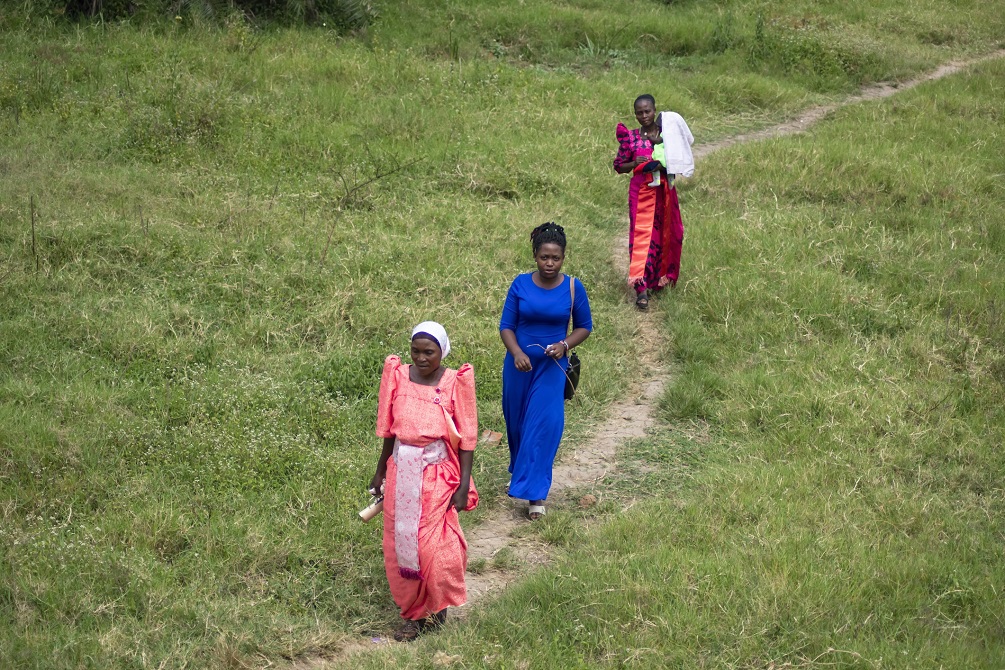


The secret to a perfect trip in Uganda is to pack comfortable clothes. In the big cities, you’ll be fine wearing Western clothes, such as jeans and t-shirts. However, if you go to small towns and villages make sure to wear a bit more conservatively. If you want to blend in with the locals, wear a long skirt or a long dress. During the day, the weather can be very warm, so make sure to pack loose-fitting clothes made of natural materials. If you’re planning to visit the mountains make sure to also pack warm clothes as here temperatures can be freezing. Opt for light colors such as green or brown and avoid blue and black as they attract tsetse flies which may bite you, giving you African Sleeping Sickness.
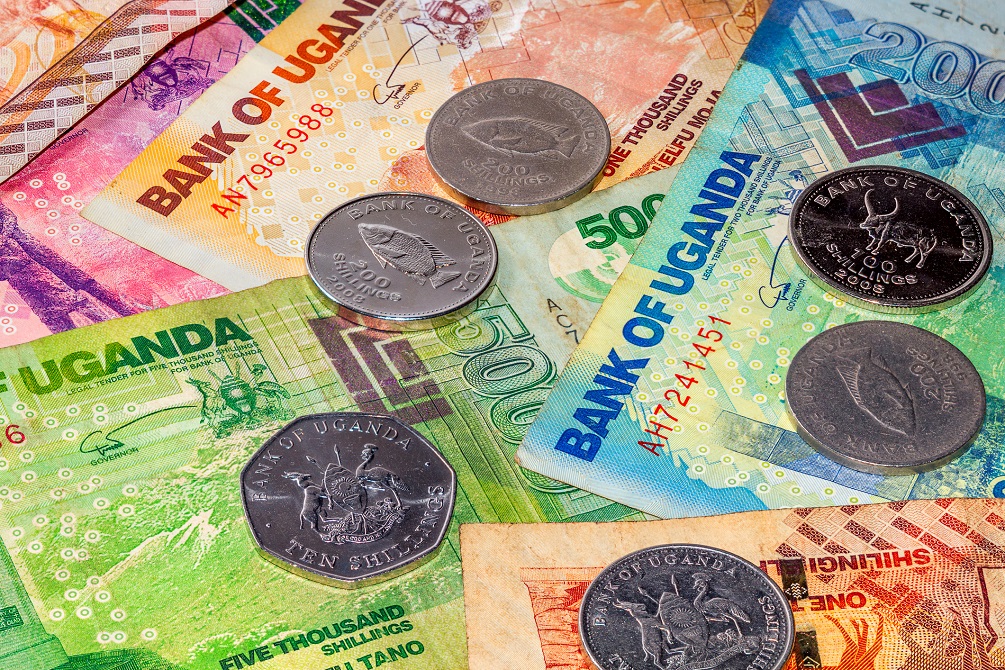


The official currency of Uganda is the Uganda Shilling (USh) however, most operators and hotels will ask you to pay in dollars. £1 = USh 4881,22. You shouldn’t have problems withdrawing your money as ATMs can be found even in small towns. Even though the main credit cards are widely accepted, make sure to bring some cash with you as in small towns this may be the only option for payments. Uganda is particularly cheap and it’s, therefore, the perfect location if you’re traveling on a low budget. A street food snack will cost you around £1 and a room in a dormitory around £8 to 14. Even though tipping is not expected, given the low prices compared to Western countries, it’s always nice to give a little tip when eating outside.
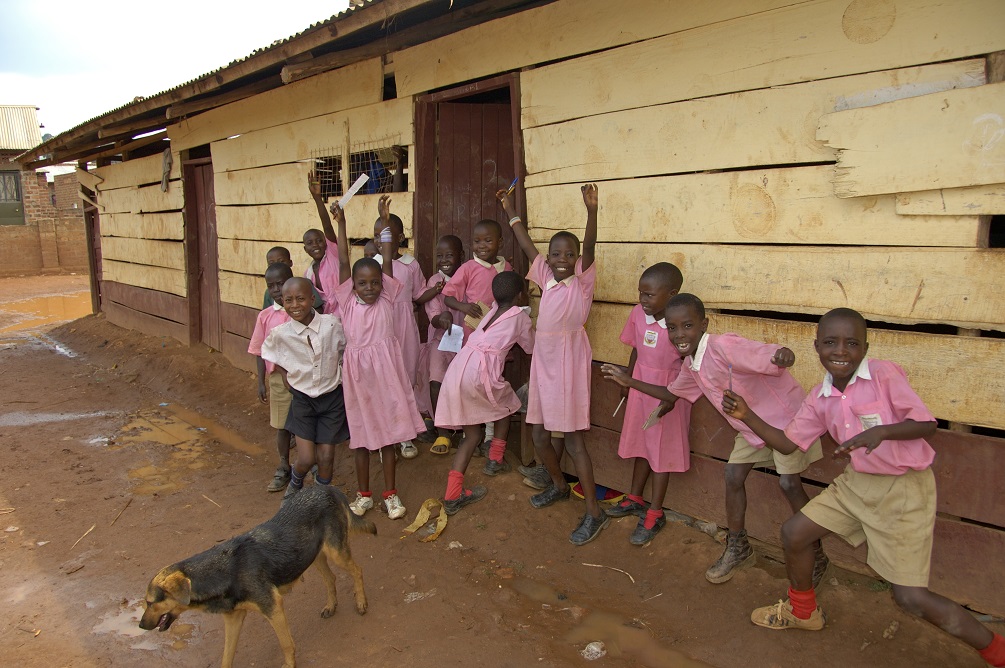


Uganda is a multilingual country. There are about forty different indigenous languages spoken in Uganda, however, they can be grouped into three main groups: Bantu, Central Sudanic, and Nilotic. If you don’t speak any of these three don’t worry. English was introduced in the country during Uganda’s colonial period and remains one of the official languages. Today, it’s mainly spoken by literate people and it’s often used in schools, politics, and media. The English spoken in Uganda is strongly influenced by the many native languages present in the country and it can be considered a dialect. It’s sometimes referred to as Uglish or Ugandan English. The second official language of Uganda is Swahili while the most spoken native language is Luganda.
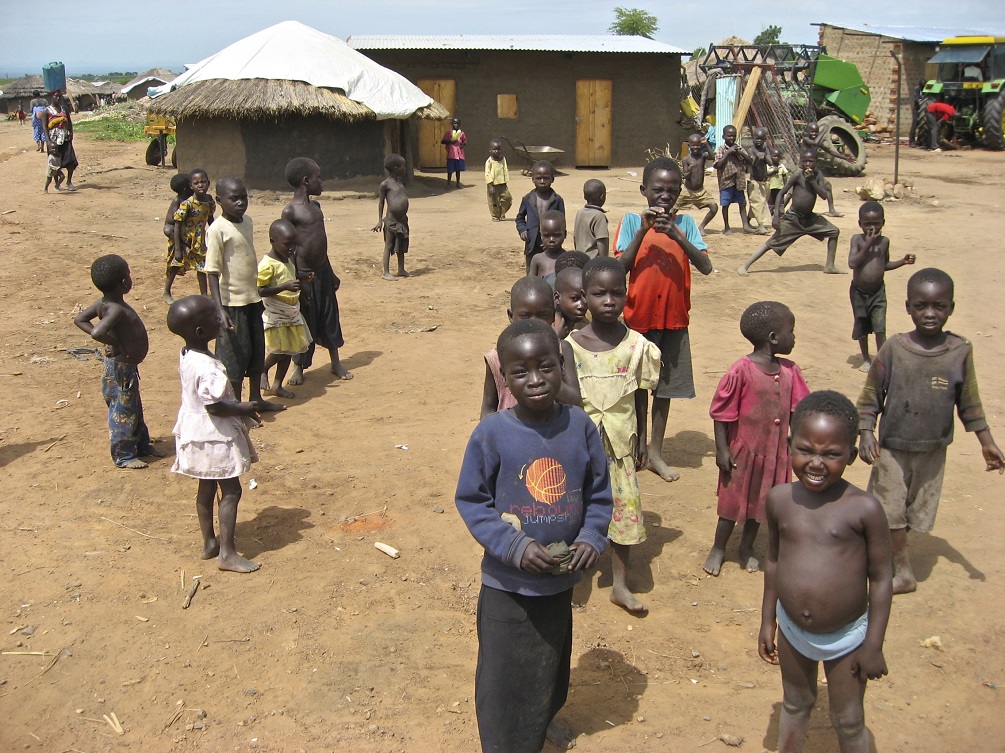


Ugandans can be pretty conservative so, during your trip, avoid contact with people of the opposite sex, such as holding hands, hugging, and kissing. Unfortunately, Uganda’s gender rights culture is still very traditional. This means that, especially in the rural areas of the country, women are the ones taking care of the house with tasks such as cleaning, cooking, and child-rearing while the husband is responsible for all the decision-making. Polygamy is acceptable all over the country while homosexuality is, unfortunately, still taboo.
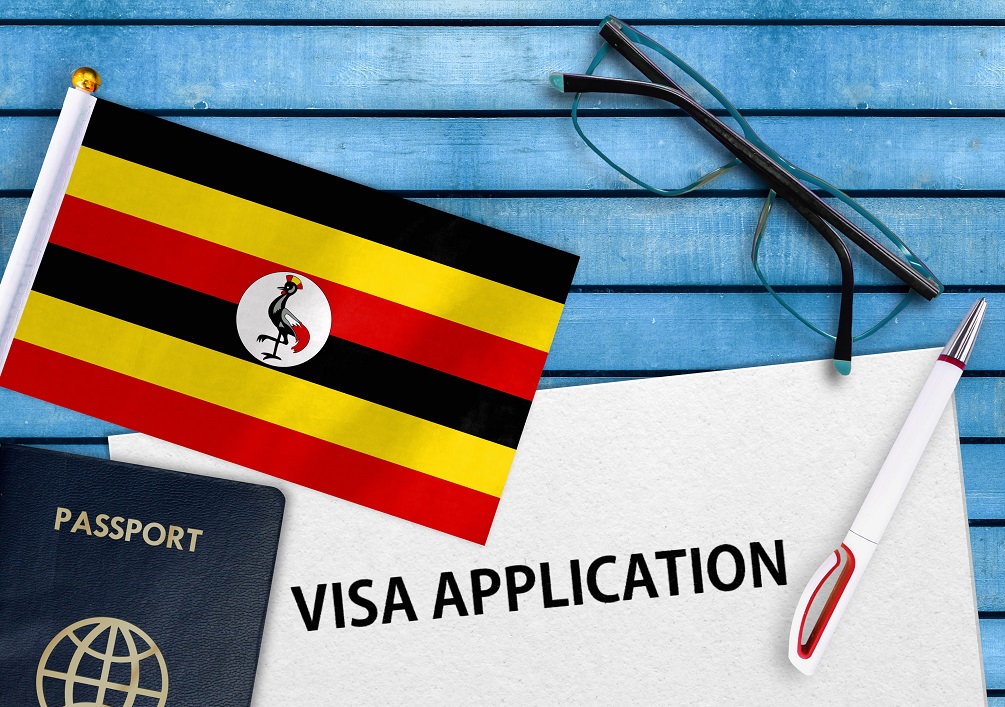


You will need a Visa to enter Uganda. You can either apply for a visa at the Ugandan High Commission in London or online. Make sure you have sufficient time to apply as the application process can be extremely long. You can also apply for an East African Tourist Visa. This type of visa is valid for 90 days and allows you to access different countries such as Uganda, Kenya, and Rwanda. Make sure that your passport is valid for at least six months from the day of entry into Uganda or you may be refused entry into the country.
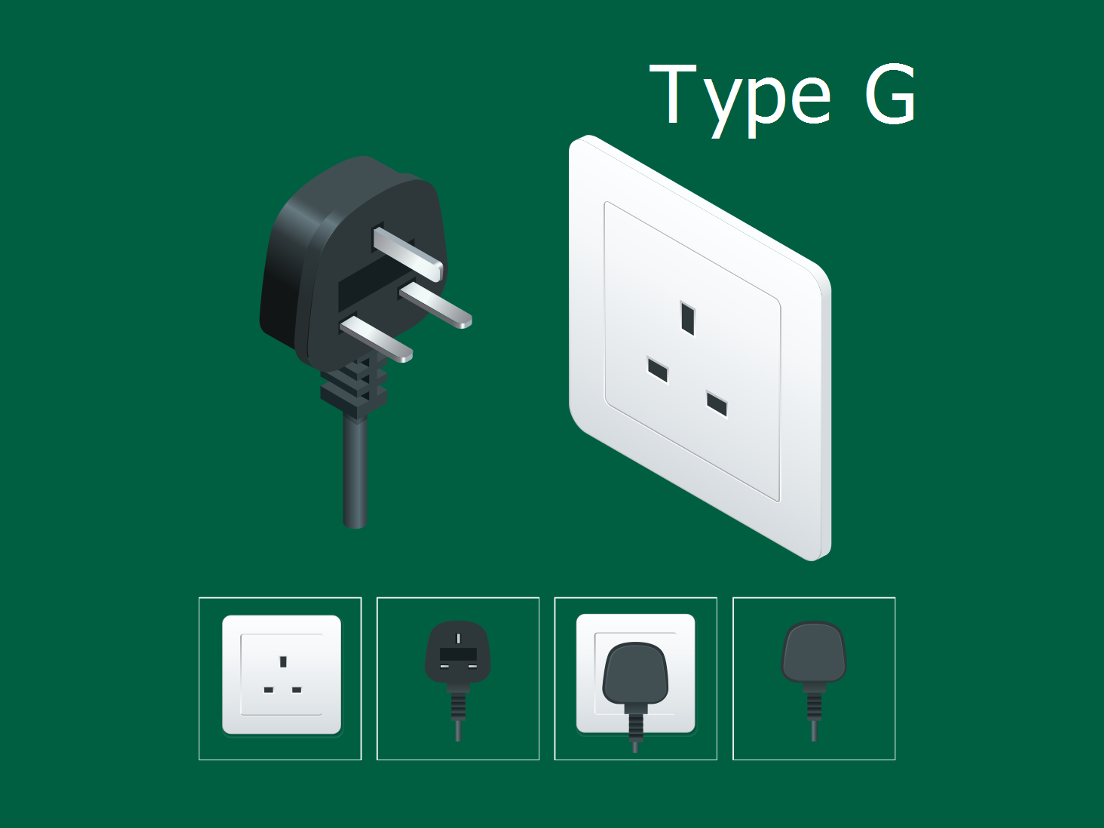


Uganda uses the associated plug type G. This plug is characterized by three rectangular pins positioned in a triangular pattern. The country operates on a 240V supply voltage and 50Hz.



There are more than fifty different tribes living in Uganda and each of them has its own traditions and habits. If you’re interested in the local fauna, then you cannot miss a guided tour of the Bwindi Impenetrable Forest where families of guerillas live in perfect harmony with nature. In Uganda, you will find plenty of guided tours in which experts will guide you through the tropical rainforest in search of apes and big mammals. Obviously, there are also plenty of options for safaris as the country abounds in national parks. The most popular ones are Queen Elizabeth National Park, Murchison Falls National Park and Kidepo Valley National Park. Make sure to visit at least one of these during your stay to get a real Ugandan experience!



Uganda is situated in the center of Africa. It is bordered to the east by Kenya, to the north by South Sudan, to the west by the Democratic Republic of Congo, and to the south by Rwanda and Tanzania. The country is situated in the African Great Lakes region. In fact, four of East Africa’s Great Lakes can be found inside its territories. In particular, a vast portion of Lake Victoria, the biggest lake in Africa, can be found inside the borders of Uganda. The whole country is situated at about 3000 feet above sea level. Mountains can be found both on the eastern and on the western areas of Uganda with the highest peak situated on the Rwenzori mountain range at an elevation of 16712 feet. The Virunga mountains can be found on the border with Rwanda and the Democratic Republic of Congo and the Kigezi mountains can be found in the southwest of the country. Uganda also has an inactive volcano, Mount Elgon, on the border with Kenya. The country is characterized by many different habitats that range from tropical forests to semi-desertic areas and savannahs making Uganda the perfect location for travelers who are craving a reconnection with nature.



Uganda is characterized by a warm tropical climate. Temperatures usually range between 25 to 29°C. However, if you decide to visit the mountains, make sure to bring some warm clothes as temperatures here can be freezing, especially at night. Uganda is situated in the southern hemisphere and for this reason, seasons are reversed. This means that the hottest months to visit Uganda are December, January, and February. Heavy rain is frequent between the months of March and May as well as September and November. If you’re planning to do some trekking, the months of January, February, June, July, and August are ideal as precipitation is rare.



The national dish of Uganda, matoke, is simple but delicious. It consists of only one ingredient, a type of banana similar to plantains, obviously named matoke. These fruits are collected when they are still unripe and then steamed. Once they are soft, they can be mashed together and eaten. Sometimes this national dish can be fried with tomatoes and onions. Another popular dish of Uganda is Luwombo. This typical stew consists of chicken, beef, or fish steamed in banana leaves with a mix of veggies such as carrots, mushrooms, and potatoes. If you’re looking for a little dessert then don’t miss mandazi. This traditional dessert is quite similar to American doughnuts and consists of a fried dough sweetened with coconut milk and sometimes topped with sugar and cinnamon.



The secret to a perfect trip in Uganda is to pack comfortable clothes. In the big cities, you’ll be fine wearing Western clothes, such as jeans and t-shirts. However, if you go to small towns and villages make sure to wear a bit more conservatively. If you want to blend in with the locals, wear a long skirt or a long dress. During the day, the weather can be very warm, so make sure to pack loose-fitting clothes made of natural materials. If you’re planning to visit the mountains make sure to also pack warm clothes as here temperatures can be freezing. Opt for light colors such as green or brown and avoid blue and black as they attract tsetse flies which may bite you, giving you African Sleeping Sickness.



The official currency of Uganda is the Uganda Shilling (USh) however, most operators and hotels will ask you to pay in dollars. £1 = USh 4881,22. You shouldn’t have problems withdrawing your money as ATMs can be found even in small towns. Even though the main credit cards are widely accepted, make sure to bring some cash with you as in small towns this may be the only option for payments. Uganda is particularly cheap and it’s, therefore, the perfect location if you’re traveling on a low budget. A street food snack will cost you around £1 and a room in a dormitory around £8 to 14. Even though tipping is not expected, given the low prices compared to Western countries, it’s always nice to give a little tip when eating outside.



Uganda is a multilingual country. There are about forty different indigenous languages spoken in Uganda, however, they can be grouped into three main groups: Bantu, Central Sudanic, and Nilotic. If you don’t speak any of these three don’t worry. English was introduced in the country during Uganda’s colonial period and remains one of the official languages. Today, it’s mainly spoken by literate people and it’s often used in schools, politics, and media. The English spoken in Uganda is strongly influenced by the many native languages present in the country and it can be considered a dialect. It’s sometimes referred to as Uglish or Ugandan English. The second official language of Uganda is Swahili while the most spoken native language is Luganda.



Ugandans can be pretty conservative so, during your trip, avoid contact with people of the opposite sex, such as holding hands, hugging, and kissing. Unfortunately, Uganda’s gender rights culture is still very traditional. This means that, especially in the rural areas of the country, women are the ones taking care of the house with tasks such as cleaning, cooking, and child-rearing while the husband is responsible for all the decision-making. Polygamy is acceptable all over the country while homosexuality is, unfortunately, still taboo.



You will need a Visa to enter Uganda. You can either apply for a visa at the Ugandan High Commission in London or online. Make sure you have sufficient time to apply as the application process can be extremely long. You can also apply for an East African Tourist Visa. This type of visa is valid for 90 days and allows you to access different countries such as Uganda, Kenya, and Rwanda. Make sure that your passport is valid for at least six months from the day of entry into Uganda or you may be refused entry into the country.



Uganda uses the associated plug type G. This plug is characterized by three rectangular pins positioned in a triangular pattern. The country operates on a 240V supply voltage and 50Hz.
Travel related news, information and inspirational articles and videos for travellers booking flights or holidays to Uganda. Ask questions about travel in Uganda and get answers from Uganda experts
NEWS
Inspiration, Information and Travel Guides
MEET THE Uganda EXPERTS
If you are looking to book a holiday to Uganda or needs some help and advice planning travel to Uganda then contact one of the UK based independent travel agents that specialise in Uganda itineraries.
FEATURED VIDEOS
Your Travel Questions Answered
Ask any travel related question and get an answer from one of our experts that will provide you with an answer from their personal experience
There is no question for this category.



